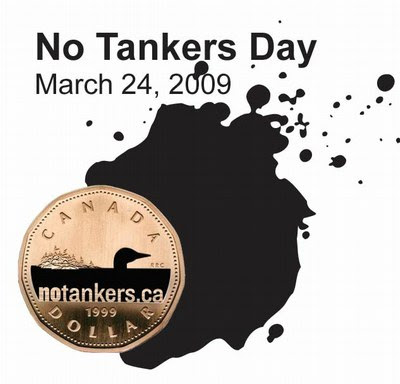
 HARLEQUIN DUCKS EYE HERRING ROE CLINGING TO SEAWEED ALONG THE FRAGILE COAST OF BRITISH COLUMBIA
HARLEQUIN DUCKS EYE HERRING ROE CLINGING TO SEAWEED ALONG THE FRAGILE COAST OF BRITISH COLUMBIAThe abundance of life along the shorelines of Oceanside at this time of year is truly profound. On a single walk I counted 30 eagles on boulders near the waterline while thousands of gulls pecked away at the herring roe washed to shore by waves.
The calm water of the Strait of Georgia, transformed into a bright turquoise color by the sperm of millions of male herring, was shattered repeatedly by the splashes of massive sea lions as they gorged themselves on adult herring just below the surface. Offshore thousands of Brant Geese were feeding on the herring roe and the eelgrass it clings to underwater. Harlequin ducks, with all their brilliant colors, navigated through the shallow waters between countless other ducks, gulls, and shorebirds.
Locally the Brant Festival provides many opportunities to learn more about shoreline wildlife and habitat. It is important to keep a respectful distance from these birds because they have a very limited time for feeding. Humans, dogs, and boats can disturb these seabirds and cause them to break away from the very important business of eating. The Brant Geese are just stopping here briefly to load up on protein from herring roe before they move north to nesting grounds in Alaska.
March 24th is the 20th anniversary of the Exxon Valdez oil spill, which occurred along the Alaska coastline on Good Friday 1989. This giant oil tanker spilled 40 million litres of crude oil into the sea, killing seabirds, sea otters, whales, sea lions, salmon, seals and many other species along the coastline. This oil slick spread over 28,000 km2 of ocean.
Since 1972 the coastal waters of British Columbia have been protected from oil tankers by a federal moratorium. Today the federal government of Canada is being asked to lift this moratorium at the request of Enbridge Inc. Their proposed Northern Gateway project includes building a twin pipeline system running 1,170km from Bruderheim, Alberta (just north of Edmonton) to Kitimat, BC where a supertanker port would be built with 2 ship berths for tankers that can hold anywhere from 200,000 to 300,000 tons of crude oil.
Even without any major spills, vast quantities of crude oil will be pumped knowingly into the waters along the BC coastline. This is because oil tankers regularly fill 1/3 of their hulls with water, pumped in from a foreign ocean, to act as ballast for the return voyage. When this ballast water is pumped out of the hull, to prepare for the next shipment of oil, it takes with it the oil dredges left behind when unloading the last shipment of crude oil. Governments around the world allow tankers to discard this type of waste oil, which can amount to 1% of the volume of the ballast water. In the case of a tanker that is able to hold 200,000 tons of crude oil this equals 650 tons of wasted oil pumped directly into coastal waters each time a tanker returns to a port such as Kitimat.
This is also how many invasive marine species are transported around the world, including: foreign mussels, oysters, eelgrass, seaweeds, and barnacles. These species will be flushed into the coastal ecosystem near Kitimat, along with the dredges of oil from the last shipment.
This entire Northern Gateway project is meant to bring oil extracted from the Alberta's Tar Sands, which is the fastest growing source of greenhouse gas emissions in Canada, to the world market. However the public still has time to demand that the federal and provincial governments maintain the current moratorium on oil tankers and drilling along the BC coast.
A while back a cashier handed me a Loonie coin and I noticed that the loon was covered in black along with the coastline highlighting the text: ‘notankers.ca’ When I checked out the website I discovered that this was part of a Dogwood Initiative campaign to raise public awareness about the impending threat to the British Columbia Coastline. Dogwood Initiative is a Canadian non-profit group based in Victoria, which wants to ensure that BC residents have the right to make their own decisions about how the land they live on is used. A video with world renowned, and local painter, Robert Bateman explains the situation simply. Check it out at: www.notankers.ca